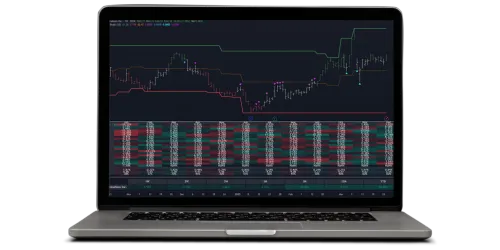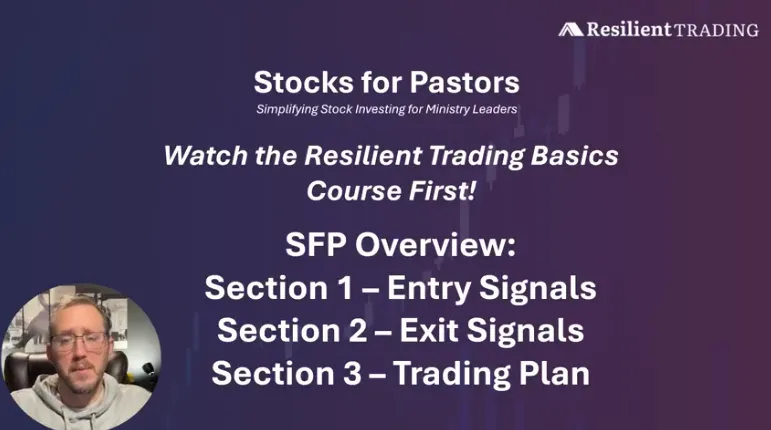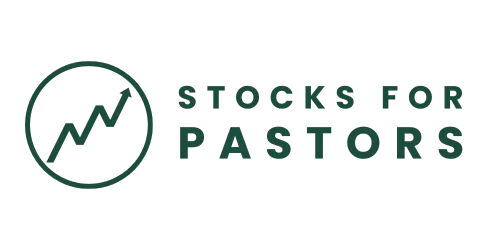A step-by-step seasonal investing system designed for busy pastors.
Grow your retirement at 3x the speed of mutual funds, without giving up your calling.

Let’s Talk About the Quiet Financial Pressure Most Pastors Carry
You’re not lazy. You’re not irresponsible.
You’ve just been so focused on helping others that your own financial future got pushed to the side. Maybe…
You’ve contributed to a retirement account here and there, but it’s nowhere near enough.
You’ve looked at the stock market before and thought, “I don’t have time to figure this out.”
You’ve wondered if you’ll have to keep working long after you want to stop, just to make ends meet.
You’ve even considered a second job or side hustle... but the thought of it wears you out.
You're not alone.
Thousands of pastors are in the same boat and they're quietly anxious about what the future holds.
But here's the truth:
You don’t need to work harder. You just need a smarter way to grow what you already have.
It’s a simple, proven investing system designed specifically for pastors who want to build wealth for the long haul; without financial stress, guesswork, or complicated strategies

You don’t need a finance degree. You don’t need thousands of dollars.
All you need is a desire to take control of your future, and a guide who understands your world.
What You’ll Gain
Follow a clear strategy based on predictable seasonal patterns
Receive a monthly watchlist of 20 high-probability stock opportunities
Grow your retirement savings steadily at 2–3% per month
Invest with confidence, even if you're just starting
Take action in under 15 minutes a week
Why Pastors Trust This Plan
You deserve a plan that works, and we’ve got the numbers to prove it.
74% win rate on seasonal trades
2–3% monthly ROI goal—compounding to 26–43% annually
90% of months have been profitable
100+ pastors served through our investing community
Start with as little as $100

Whether you're managing a tight budget or just want a smarter long-term strategy, the Growth Plan gives you the tools and the confidence to build wealth with purpose.
PRICING
Choose Your Plan
Monthly
$15/mo
Beginner-friendly video course that walks you through every step
Monthly Stock Watchlist with 20 seasonally strong picks
Step-by-step trade setup guide
Access to our investor community
Ongoing support & updates
Get 2 months free with Yearly Plan
Credit toward Income Plan Upgrade

No contracts - cancel anytime
Annually (Best VALUE)
$147/yr
Beginner-friendly video course that walks you through every step
Monthly Stock Watchlist with 20 seasonally strong picks
Step-by-step trade setup guide
Access to our investor community
Ongoing support & updates
Get 2 months free with Yearly Plan
Credit toward Income Plan Upgrade

No contracts - cancel anytime
What Members are saying

“I never thought investing was something I could do—but this gave me confidence, clarity, and a clear path forward.”
Jason D.

“My account has nearly doubled in 18 months since I started with Stocks for Pastors.”
Eric B.

“Michael’s course has helped me see a clear path to advance my family financially. It is doable and attainable- exactly like he said it would be."
Dave C.
Ready to Start?
Take the first step toward financial freedom.
On your time, with your values, and for your future.
Read Our Latest Blogs
Lorem ipsum dolor sit amet, consectetur adipiscing elit.

À La Carte Spirituality:
The Exhaustion of Modern Life
"Do you think life is just exhausting now?"
I saw those words light up in my text messages this morning from a friend in ministry.
She has been battling so much:
Church hurt—being mistreated and lied about.
Grief—losing a beloved parent.
Health struggles—a major illness that nearly took her life.
Fighting her way back into a daily routine after all of that is mind-bending and exhausting.
But her question wasn’t about those things.
I knew exactly what she meant—because I’ve felt it too.
Life is hard in ways it didn’t used to be.
The Commercialization of Well-Being
Americans have a cultural problem that has quietly seeped into our churches.
We capitalize on everything—including ordinary, everyday aspects of well-being:
Nutrition? Our food is nutrient-deficient—but don’t worry, we can buy vitamins to supplement.
Exercise? We live sedentary lives—but for an annual fee, we can subscribe to a gym.
Community? Real-life interaction is rare—but we can pay for a therapist (or log in for a virtual session).
We are receding into the shadows, losing real connection, and yet we can’t figure out why we feel so exhausted, so lost, so sad.
Even meditation—which should be about quieting the heart before God—has been commercialized, packaged into paid yoga classes rather than an organic part of life.
Self-care has been reduced to chocolate cake and spa days—things that feel good in the moment but have no lasting impact on personal well-being.
We are surviving—one purchase at a time.
But very few of us are actually living.
The Consumer Church: Pick and Choose Spirituality
Ministry is harder than ever—not because people are intentionally rejecting faith, but because they’ve been conditioned to consume selectively.
They buy what they want—when they want it—and ignore the rest.
We’ve become so conditioned by absence that when something is added back into our lives, it feels optional.
Rather than seeing ourselves as slaves to consumerism, we’ve embraced it as control.
Church has become just another menu item in our à la carte spirituality:
✅ Encouragement? Yes, please.
✅ Feel-good messages? Absolutely.
❌ Accountability? No, thanks.
❌ Correction? Not interested.
Pastors and their families have been commodified—viewed as paid providers rather than shepherds to be trusted.
And in many cases, the failure of church leaders has allowed this distortion to take root.
But Christianity isn’t a vitamin to take when we feel spiritually weak.
Faith isn’t a gym membership we can pick up when we feel like exercising our "Jesus muscles."
This consumer mindset is killing the church.
Why We Feel So Exhausted
We feel exhausted because nothing is running as it should.
Americans are sick because we are addicted to consumption.
American Christians are spiritually sick because they are Americans first, Christians second.
Many pastors are enslaved—not to Christ, but to the people who "own" them by way of their tithe dollars.
This cannot continue.
The Reformation Starts With Us
If change is going to happen, it has to start with us—those who have surrendered our time, families, and lives to the ministry of the gospel.
We must lead:
Healthy lives personally.
Biblical lives in community.
Christ-centered homes.
The Role of Women in Reforming Spiritual Culture
As women, wives, mothers, and pastors' wives, we have a huge responsibility in paving the way.
For those of us who are moms, we must:
Be the most powerful voices in our children’s lives.
Lead them—not be their friends.
Be their examples, guides, protectors, and emotional regulators.
The tone of the home rises and falls with the mother.
This doesn’t mean we never struggle—but it does mean we must learn to struggle well:
Not in drama—but in faith.
Not in fear—but in trust.
Not in seeking attention—but in pointing to Jesus.
Teaching the Next Generation to Hunger for the Right Things
Our culture teaches our kids that the loudest, most dramatic person gets the most attention.
We must teach them that:
A gentle and quiet spirit is valuable.
Meekness and humility are strengths—not weaknesses.
The constant need to consume will leave them empty.
The Church as a Burden-Bearing Community
Church leaders—especially pastors and their families—have become a halfway house for a community that no longer understands how to carry burdens together.
Pastors carry people's:
❌ Heaviness.
❌ Drama.
❌ Emotional weight.
But in many cases, the goal isn’t healing—it’s validation.
That is not biblical burden-bearing.
That is toxic weight—and it leads nowhere.
We are not called to be fixers or spiritual heroes.
We are simply called to be disciples who:
✅ Love well.
✅ Carry one another’s burdens.
✅ Pursue Christ—together.
Love alone is not enough.
We cannot love someone into righteousness.
We cannot love someone into obedience.
We cannot love someone into healing.
But we can love them with the love of Christ—and point them to Him.
Finding Rest in Our True Home
Let’s be:
As healthy as possible in our earthly bodies.
As kingdom-minded as possible in our outlook.
Clothed in gospel community—because life is exhausting, but it doesn’t have to be this exhausting.
“Join together in following my example, brothers and sisters… For, as I have often told you before and now tell you again even with tears, many live as enemies of the cross of Christ. Their destiny is destruction, their god is their stomach, and their glory is their shame. Their mind is set on earthly things. But our citizenship is in heaven. And we eagerly await a Savior from there, the Lord Jesus Christ.” – Philippians 3:17-21
This is not our home.
There is more to life than empty earthly pursuits.
“We have absolutely nothing to lose because we have nothing to keep.” – Lilias Trotter
Let’s live like it.


